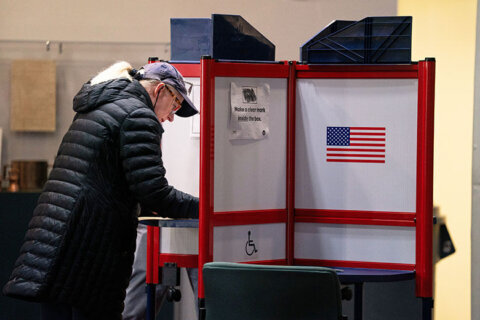WASHINGTON — It’s all about security. Or rather, the perception of security.
“Until security on the internet feels like something the people can trust … paper is the future,” said David B. Bjerke, director of elections and general registrar of voters of Falls Church, Virginia.
Paper — or lack of it — was one of the reasons that several models of voting machines were suddenly decertified by Virginia’s State Board of Elections. The tipping point came over the summer, when hackers at the DEFCON gathering in Las Vegas demonstrated how they could compromise the security of direct recording electronic machines.
“I understand why the Virginia State Board of Elections made their decision,” said Bjerke.
“The security that was involved in these DREs, the direct recording electronic machines, hadn’t been updated since 2004. So, obviously, technology has increased since then. And the ability to hack equipment in general has increased. And so, without updating those security protocols, I understand why they wanted to make all DREs decertified.”
Falls Church, which has only about 10,000 registered voters, lucked out: It has already purchased new voting machines, to be delivered in January.
“We already had this in the plan,” said Bjerke. “There was no scrambling for money that had not been accounted for.”
He says it was simply a matter of moving up the delivery date, which the vendor was able to do.
Bjerke says the voting process will take a bit longer next month.
“Voters used to just go to the machine, get their ballot and cast it right there at the machine. Now we have to hand out pieces of paper, have privacy booths everywhere and then watch the flow to make sure that the voters make it to the scanner and aren’t leaving ballots elsewhere.”
Paperless voting machines were supposed to speed up and simplify the entire process. But the entire system is built on voter confidence, Bjerke said. So he’s OK with going back to the future.
“I think the paper-based system is good because you do have a tangible ballot that can be used for audits, for recounts. You don’t have to trust the machine,” said Bjerke. “You really have to make the voters feel confident in this system. And the paper-based system, I think, makes more voters feel confident than the old DRE systems.”







